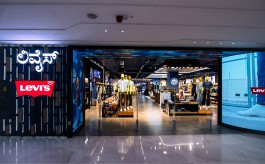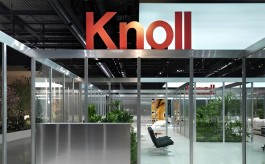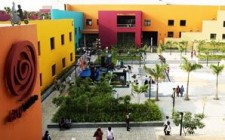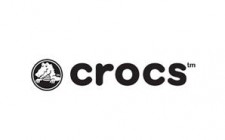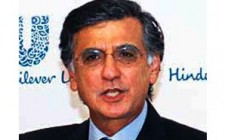Connecting retailers to consumers
Vjmedia Works | October 06, 2014
While FreeCharge provides a unique value proposition of driving promotions, keeping customers engaged on the platform is critical
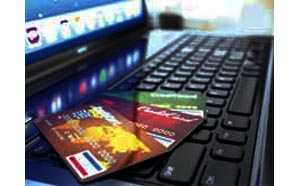 While trying to recharge her phone online a few months ago, Palak Agarwal stumbled upon FreeCharge. The website had various offers, including 'free' coupons and discounts. Excited, Palak quickly spread the word among her friends.
While trying to recharge her phone online a few months ago, Palak Agarwal stumbled upon FreeCharge. The website had various offers, including 'free' coupons and discounts. Excited, Palak quickly spread the word among her friends.Today, she and her friends regularly recharge their mobile phones on FreeCharge, which has about 10 million registered users.
The company launched operations on August 15, 2010, promising to provide 'free' talk time to mobile phone users. Every time a user recharges her/his phone, data card or direct to home television (DTH) service through the FreeCharge platform, she/he is reimbursed through discount coupons. For coupons, users can choose from 150 merchants listed on the site, including McDonalds, PVR, Costa Coffee and Myntra.
A few weeks ago, the company announced it had raised $33 million in series-B funding from a host of investors such as Sequoia Capital, Sofina and Ru-Net.
Business model
FreeCharge provides a platform for retailers to connect with consumers. Shailendra Singh, managing director of Sequoia Capital India, says, "FreeCharge is creating a unique new category - an advertising platform, with a 'consumption graph' for the most valuable online consumers. We are very impressed with the team's execution and the rapid growth and engagement of users on the platform."
The company's core proposition is driving customers through coupons for offline and online brands. Kedar Tenny, director (marketing & digital), McDonald's India (West & South), says, "FreeCharge provides us a unique value proposition of driving promotions. It has been able to drive in a significant number of customers from the online world into our restaurants, with performance-tracking that is on par with online digital advertising." Companies are able to measure the effectiveness of their campaigns and collect data on consumer preferences.
Sanjay Coutinho, chief executive of Baskin Robbins, says, "The exclusivity the site offers is an attractive proposition. As the website features strong brands, we are able to maintain our premium value, and not appear as a discount brand."
"There is a lot of traffic and a fair amount of brand visibility. Also, the cost of acquiring new customers is low, compared to other avenues," says Sharat Dhall, president (marketing), Yatra.com.
The company earns revenues from two sources. The first is the fee it gets when users recharge phones, DTH facilities or data cards through the FreeCharge platform. Experts estimate this fee is two to three per cent of the amount spent. Alok Goel, chief executive of FreeCharge says, "Currently, 90 per cent of the transactions are in the prepaid segment, other segments are growing at an equally brisk pace."
The other income stream is the commission firms such as McDonald's pay FreeCharge for driving traffic. While some companies might choose to pay every time a user opts for its coupon, others pay only when a customer walks into their outlet. Experts estimate this fee to be two-five per cent.
Rather than focusing on profitability, FreeCharge seems to be following a strategy typical of online companies - creating a system so big that it becomes difficult to compete against. As Goel succinctly puts it, "The focus is on growing, rather than on profitability."
Weaknesses
 "The absence of entry barriers could encourage others to enter this space," says an expert. Tata Sky, for instance, has started offering a similar service on its site. Telecom operators such as Airtel and Vodafone, which already have large subscriber bases they can tap into, might easily replicate the model.
"The absence of entry barriers could encourage others to enter this space," says an expert. Tata Sky, for instance, has started offering a similar service on its site. Telecom operators such as Airtel and Vodafone, which already have large subscriber bases they can tap into, might easily replicate the model.As FreeCharge's ability to scale up operations will be determined by an increase in its customer base, expanding its services to keep customers engaged on the platform is critical. Unlike sites such as MobiKwik which, in addition to providing recharge facilities, also offer users services such as utility bill payments, FreeCharge is yet to offer these. While it is felt similar offerings from FreeCharge might be in the offing, there is delay in this regard.
Nitin Sharma, principal at venture fund LIGHTBOX, says, "The question of how big such companies can become has to do with whether advertisers keep seeing good results on a sustained basis...Recharge is a very quick interaction. So, is there a clear context for brands to engage consumers? Besides monitoring coupon-redemption rates, they might look at whether they're attracting the right kind of customers who are shopping beyond initial discounts."
Another issue, as a new user points out, is the limited set of merchants on the site. A typical user in Delhi looking for a free meal coupon will be hard-pressed to find a wide variety of establishments to choose from.
Way forward
According to Goel, "The immediate goal is to execute one million daily transactions by early next year." While the company didn't share its estimate of the impact of this milestone on its finances, it is expected this will give FreeCharge the negotiating heft to rope in brands and strike more lucrative deals.
As many high-end customers (DTH and postpaid mobile data users) aren't aware of the site, the company has stepped up efforts to establish its brand by launching its first TV campaign. Goel says a "significant share of the $33 million raised will be used to create brand awareness".
While there are concerns, Nitin Sharma says, "The leading players can see a bit of a network effect - more users will bring more brands and better economics (commission on airtime sold), and more brands and more offers could mean more users keep coming back."
Advertisement

